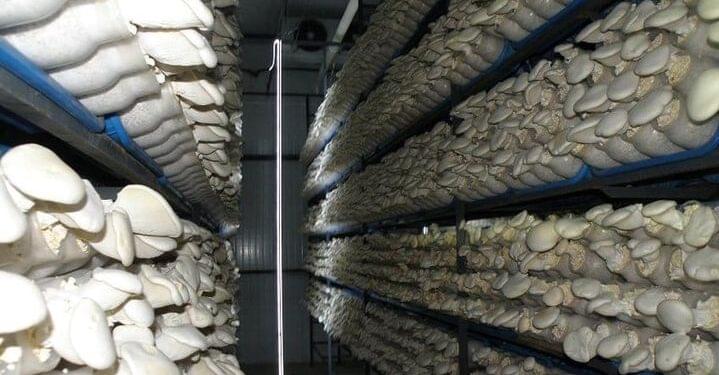Urban areas in Mutare are witnessing a farming trend as residents rally together to establish cooperatives dedicated to mushroom farming at a commercial scale.
This grassroots movement is not only enriching local diets with the flavorful delicacy but also promising economic empowerment for community members.
Edible mushrooms, priced for their rich protein and vitamin content, along with their medicinal properties, are gaining popularity despite the technical challenges associated with their cultivation.
Nonetheless, proactive members of a Mutare-based cooperative have defied the odds, successfully launching a thriving mushroom project with support from governmental and other partners.
“We are 50 people and we are registered as a cooperative. We produce fresh mushrooms, dried mushrooms, soups, and powder,” shared one of the farmers, illustrating the diversity of their mushroom-based products.
Another farmer echoed the project, highlighting the financial benefits of mushroom cultivation: “We used to buy mushrooms from shops but we have discovered that it’s very easy to venture into mushroom production. We have four rooms to produce mushrooms and generate up to US$100 every day.”
This initiative forms part of government efforts to foster gender-inclusive economic development, with a focus on empowering women and youth to contribute to national development goals.
Priscilla Maposa, Regional Director of Gender Links, emphasized the project’s impact on marginalized groups, stating, “Some of the beneficiaries are survivors of gender-based violence. The Mutare city council Mushroom project is going on very well. The group of 50 participants is organized.”
Acting Mutare Town Clerk, Blessing Chafesuka, elaborated on the collaborative nature of the initiative, highlighting the partnership between the city council, Gender Links, and other stakeholders. Financial and technical support provided by these entities has facilitated the project’s success.
Government officials, including Manicaland Minister of State for Provincial Affairs and Devolution, Advocate Misheck Mugadza, and Minister of Local Government and Public Works, Daniel Garwe, commended the initiative as a model for inclusive development and rural industrialisation.
“This is testimony of cordial relations between the government and the private sector. This programme has seen women producing mushrooms. This can be replicated across the country to advance rural industrialization,” remarked Advocate Misheck Mugadza.
Minister Daniel Garwe emphasised the alignment of such projects with the national development agenda, reiterating the government’s commitment to supporting similar empowerment initiatives nationwide.
Source Newsreportzim.com










